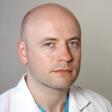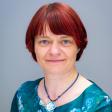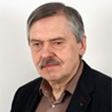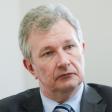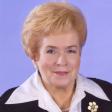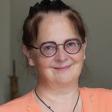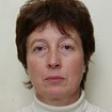Medical Engineering and Physics
The joint study programme of Rīga Stradiņš University (RSU) and Riga Technical University (RTU) prepares medical physical technology engineers for future work in research, manufacturing, maintenance of medical equipment at hospitals and other healthcare institutions. Graduates of the programme receive a diploma awarded jointly by RSU and RTU.
Programme Fact File
Health Care
accredited until
Professional Bachelor Degree in Medical Physics and Qualification of Medical Physical Technology Engineer
40 full fee
The programme prepares qualified specialists – holders of a Professional Bachelor’s degree in medical physics and medical physical technology engineers (according to the professional standard) for professional work in the area of medical engineering and medical physics with professional knowledge in the composition of medical equipment, apparatus and instruments, physical and technical operating principles, terms of use and safety; with practical skills in work with medical equipment – purchase, installation, operation, adjustment and quality assurance, being trained for the planning and supervising of radiation technologies and dosimetry. The study programme prepares you for experimental research and for future studies in the professional Master’s study programme.
Study environment and methods
Studies take place in a modern and supportive environment – organised in the form of lectures, video lectures, workshops and practical classes, also involving active independent work by students.
During acquisition of the study programme, you will gain knowledge, develop skills and gain proficiency in different professional areas. The list of study courses to be acquired at RSU are listed below:
- 1st academic year
- The study course Cell and Tissue Microstructure will improve your knowledge on the structure and functions of human cells, tissues and organs, biocompatibility and body defences.
- The study course Medical Terminology in English will improve your professional English proficiency.
- 2nd academic year
- In the study courses Anatomy and Physiology you will acquire knowledge on the basic structural principles of a living organism and the mutual interrelation of causes and effects of processes within the organism.
- The study course Healthcare Economics will develop your skills in applying macro- and microeconomic methods in the analysis and planning of healthcare processes.
- 3rd academic year
- The study course Medical Instruments, Equipment and Systems and their Application, held in the simulation centre (Medical Education Technology Centre) and the clinic will provide you with knowledge on the use of different medical instruments and healthcare equipment.
- The study course Introduction to Occupational Safety and Civil Defence will teach you to protect yourself and others against hazardous occupational and environmental impacts and to organise and participate in civil defence activities
- The study course Medical Ethics will develop your skills in motivating your colleagues for honest and effective professional activity, the importance of the code of conduct in motivating others and the ethical and psychological aspects of teamwork.
- 4th academic year
- The study course Public Health and Epidemiology will provide you with knowledge and understanding of the basic topics, concepts, principles and methods of modern public health and epidemiology and their application in research in medicine and health sciences.
Study methods
- Lectures
- Seminars
- Practical classes
Study bases
- RSU central building, 16 Dzirciema iela
- Medical Education Technology Centre, 26 Anniņmuižas bulvāris
- Institute of Anatomy and Anthropology, 9 Kronvalda bulvāris
- Pauls Stradiņš Clinical University Hospital
- RTU
Work opportunities after graduation
The study programme prepares medical physical technology engineers who can work in research, manufacturing, provide maintenance services for medical equipment at hospitals and other healthcare institutions or work as distributors of medical equipment. Graduates of the programme will have sound knowledge of various types of medical equipment – from scalpels to complex radiology equipment. To acquire specialisation in a specific area, graduates of the programme can continue master’s level studies at RTU.
Admission requirements
Admissions to the study programme are organised by Riga Technical University. Riga Stradiņš University implements 10 % of the total study content.
Study programme description on RTU website
RTU Admission requirements for Bachelor's studies
Head of Programme
Academic Staff, Department of Anaesthesiology, Intensive Care and Clinical Simulations
